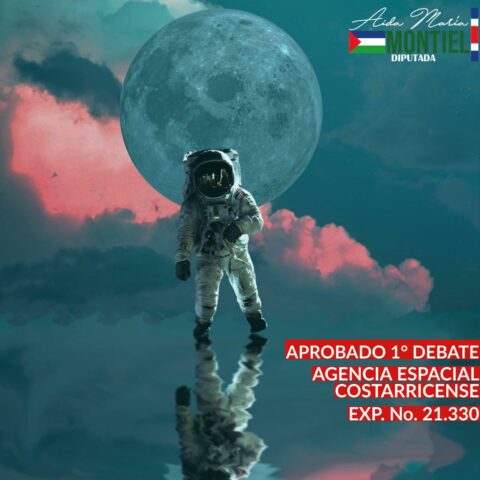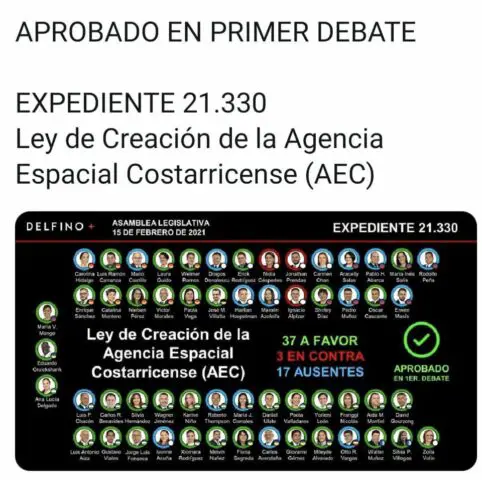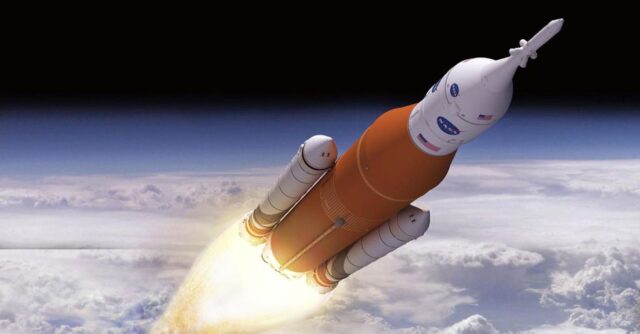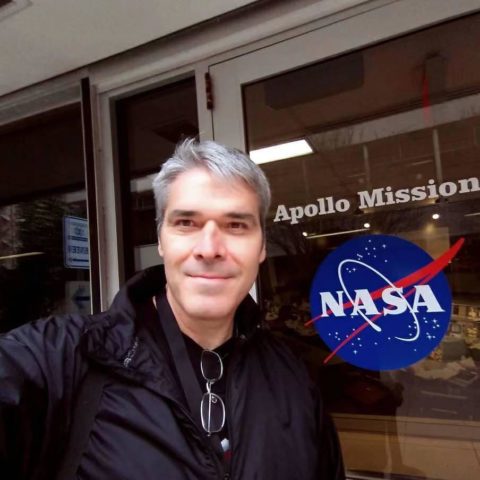In my blog this week Andrea Jimenez discusses why the creation of the Costa Rica Space Agency is so important for the country’s economic development.

Last Thursday, February 18, the law for the creation of the Costa Rican Space Agency was approved in the second debate. This historical fact raises the country as a promoter of education, technology, and diversification of the economy. Said law aims to benefit the province of Guanacaste, which urgently requires the development that said agency will bring.
The impact on science, technology, social and economic development that the creation of a space agency brings, is undeniable, but at a time of economic uncertainty the analysis of the usefulness of a space agency is considerable.
If the Coronavirus pandemic left us a valuable lesson it was to appreciate and promote the country’s researchers and technologists. We also realized the need for the Costa Rican state to undergo a strict reengineering of processes that allows it to be more efficient in its use of resources and its contribution to the country. That said, at this time the country cannot limit itself to growing in institutions that promote scientific and educational growth. A space agency brings with it both material and immaterial benefits and both must be considered for the development of the country.
We believe that the work of a space agency is exclusively to explore space, go to Mars and send astronauts to the international space station, but the reality is that space agencies are responsible for many of the technologies that we currently have on earth and are responsible for monitoring of this. Some of the best examples are GPS, satellites, solar panels, UV filters, and development of better vaccines, understanding osteoporosis, and remote surgeries.
Space technology is responsible for the improvement of our lives on earth and having a representative institution will allow us to have an impact on issues such as legislation, space policy and international agreements.

The space agency would allow Costa Rica to be part of an elite of first world countries that makes the decisions of one of the most proliferating and promising industries today.
In the United States, NASA uses less than 1% of the federal budget and has an economic output of 64.3 billion dollars. NASA not only generates economic income, but also generates 312 thousand jobs. Through NASA, the state generates 1 million dollars for each “Spin-off” or venture that arises and generates more than 1600 new technologies per year. NASA promotes foreign collaboration by having more than 500 agreements with 2 /3 of the planet. It involves more than 1 million people and hundreds of countries in the promotion and dissemination of science.
The Canadian space agency reports revenues from the aerospace sector of 5.7 billion dollars and has a stable growth of 1.3%. 40% of these revenues came from exports of products and services. The space sector has contributed 2.5 billion dollars to the country’s GDP and has generated more than 20,800 jobs. 86% of the reported income comes from the areas of communications and ground observation.
The European space agency reports revenues of 7.4 billion dollars. The largest investment of the agency is directed to ground observation (22%) followed by navigation systems that include GPS (18.9%). The European space agency is responsible for maintaining the ecosystem that is made up of large system integrators, SMEs, innovative start-ups, R&D institutions, academia, and private investment funds. Creating the conditions for the space economy to proliferate.
According to Morgan Stanley, by 2040 the revenue generated by the space industry will exceed a trillion dollars. Costa Rica can be part of this economy. The creation and legislation of an industrial park dedicated to the aerospace industry in the province of Liberia can make it part of the satellite industry that generates 366 billion dollars, data reported by the association for satellite industry. Generating thousands of jobs and diversifying the area, attracting a new type of leisure and business tourist.

According to the economist Andrés Rodríguez, the global positioning that Costa Rica has in medical devices, where $ 3,699 million were exported, can be used as an example of the potential that Costa Rica has in the diversification of income that can occur due to the incursion into the aerospace industry. “Costa Rican talent is the main attraction of foreign investment and the already credibility that the country has could be one of the factors that support a potential and feasible creation of a space agency.” The economist also comments that the process in which the country is joining the OECD may be a point in favor of the correct entry into the industry.
To romanticize the Costa Rican space agency as an exclusively space exploration entity would be a mistake for decision-making today and for the development of future strategy. The true economic value of the agency is found in the attraction of foreign investment, the development of SMEs and “Start-ups” on national soil, participation in decision-making on space policy, intellectual exchange and international collaboration.

The intangible value is now found if, in all those discoveries, innovations, agreements inside and outside the country and scientific influence made by Costa Ricans.

Bruce Callow is a Canadian teacher and co-author of the books To the Stars: Costa Rica in NASA and The Intrepids: Costa Rican Women in Science and Technology. He does space education outreach work on behalf of NASA.

